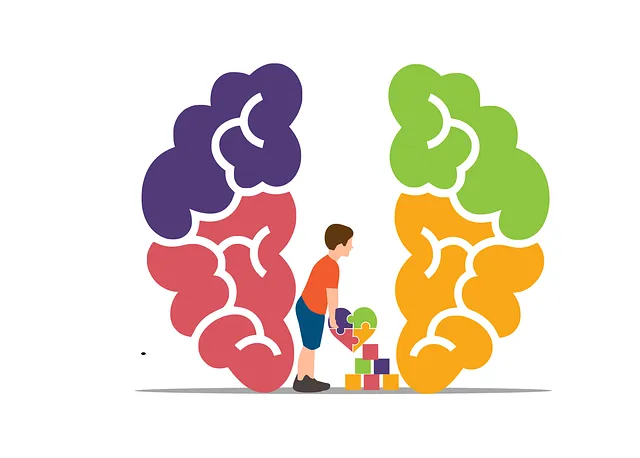The Kaiser Permanente mental health appointment center in Lone Tree is addressing diagnosis inconsistencies through comprehensive programs focusing on mindfulness, resilience building, and continuous learning. They prioritize staff training, advanced assessment tools like data analytics, remote digital platforms, and cultural competency to enhance accuracy and speed up care delivery while tailoring treatments to individual needs. Open communication, robust risk assessments, and stress reduction methods improve patient-provider collaboration, leading to more precise diagnoses and improved mental health outcomes through their commitment to Continuous Quality Improvement (CQI).
Mental illness diagnosis accuracy is a critical aspect of healthcare, especially at large organizations like Kaiser Permanente’s mental health appointment center in Lone Tree. Inconsistencies in diagnosis can lead to delayed treatment and poorer outcomes. This article explores efforts to improve diagnostic accuracy through enhanced training for healthcare professionals, advanced assessment tools and technologies, encouraged open communication with patients, and continuous quality improvement strategies. By focusing on these areas, Kaiser Permanente aims to provide more precise and effective mental health care at its Lone Tree appointment center.
- Understanding the Challenge: Mental Health Diagnosis Inconsistencies at Kaiser Permanente Lone Tree
- Enhancing Training Programs for Healthcare Professionals
- Integrating Advanced Assessment Tools and Technologies
- Encouraging Open Communication and Patient Collaboration
- Continuous Quality Improvement: Monitoring and Adjusting Strategies
Understanding the Challenge: Mental Health Diagnosis Inconsistencies at Kaiser Permanente Lone Tree

At Kaiser Permanente’s mental health appointment center in Lone Tree, inconsistencies in diagnosis have been a point of concern. Despite the facility’s best efforts to provide comprehensive care, variations in how mental health professionals interpret symptoms and diagnose conditions can lead to missteps in treatment. This challenge is not unique to Kaiser Permanente; it’s a widespread issue within the mental health sector.
The complexity of mental wellness, intertwined with subjective experiences and diverse therapeutic approaches, contributes to these inconsistencies. To address this, Kaiser Permanente Lone Tree has initiated several efforts. These include promoting mindfulness meditation and resilience-building programs to enhance both patient self-awareness and clinician assessment skills. By fostering a culture that prioritizes continuous learning and encourages open discussions around diagnosis, the center aims to improve accuracy and ensure patients receive the most effective care for their unique mental health needs.
Enhancing Training Programs for Healthcare Professionals

At the Kaiser Permanente mental health appointment center in Lone Tree, efforts to enhance training programs for healthcare professionals are pivotal. These initiatives aim to improve diagnosis accuracy by equipping practitioners with advanced knowledge and skills. The focus is on fostering resilience building among staff, a key strategy to prevent burnout, which can significantly impact their judgment and overall patient care.
Through comprehensive training modules, the center emphasizes depression prevention and burnout prevention techniques, enabling professionals to recognize subtle symptoms and make more precise diagnoses. This holistic approach not only benefits individual practitioners but also enhances the quality of mental health services provided at the center, ensuring patients receive the most effective treatments tailored to their unique needs.
Integrating Advanced Assessment Tools and Technologies

In recent years, the Kaiser Permanente mental health appointment center in Lone Tree has been at the forefront of improving diagnosis accuracy by integrating advanced assessment tools and technologies. These innovations include sophisticated data analytics that can identify subtle patterns indicative of various mental health conditions, enhancing the reliability and speed of diagnoses. Additionally, digital platforms offering remote assessments and monitoring have expanded access to care, particularly beneficial for individuals who might face barriers in attending in-person appointments.
The center also recognizes the importance of Healthcare Provider Cultural Competency Training, Stress Reduction Methods, and Mental Wellness Coaching Programs Development. By equipping professionals with a deeper understanding of diverse cultural perspectives and effective stress management techniques, these initiatives contribute to more nuanced and empathetic care. This holistic approach ensures that patients receive not just accurate diagnoses but also tailored support for their mental wellness journeys.
Encouraging Open Communication and Patient Collaboration

Encouraging open communication and patient collaboration is a key strategy in enhancing mental illness diagnosis accuracy at Kaiser Permanente’s Lone Tree mental health appointment center. When patients feel comfortable discussing their experiences, symptoms, and concerns openly with healthcare providers, it facilitates a more comprehensive understanding of their psychological well-being. This two-way interaction allows mental health professionals to gather valuable insights, clarify ambiguities, and tailor treatment plans to meet individual needs effectively.
Implementing robust risk assessment tools and integrating stress reduction methods into the care process further strengthens this collaborative approach. The Risk Assessment for Mental Health Professionals serves as a guide to identify potential risks and triggers, enabling practitioners to proactively manage patient safety during appointments. Simultaneously, incorporating Stress Reduction Methods can help both patients and providers mitigate anxiety, improve focus, and enhance overall communication, ultimately contributing to more precise diagnoses and improved treatment outcomes.
Continuous Quality Improvement: Monitoring and Adjusting Strategies

At the Kaiser Permanente mental health appointment center in Lone Tree, Continuous Quality Improvement (CQI) plays a pivotal role in enhancing diagnosis accuracy. This involves regularly monitoring and adjusting strategies based on data-driven insights. By meticulously tracking patient outcomes and provider performance, CQI initiatives ensure that protocols remain effective and relevant in addressing evolving mental health challenges. For instance, the center has implemented regular reviews of diagnostic criteria and symptom assessment tools to capture emerging trends and nuances associated with conditions like depression and anxiety.
Through these efforts, Kaiser Permanente Lone Tree aims to refine its approach to Depression Prevention and Stress Management. Moreover, by fostering a culture of Compassion Cultivation Practices among healthcare providers, the center strives to improve patient experiences and outcomes. This holistic strategy not only enhances diagnostic accuracy but also cultivates a supportive environment that promotes mental well-being for all individuals seeking care.
Mental illness diagnosis accuracy is a multifaceted challenge, as evidenced by inconsistencies at Kaiser Permanente’s Lone Tree mental health appointment center. To enhance care, healthcare professionals should participate in advanced training programs, integrate innovative assessment tools and technologies, foster open communication with patients, and continually improve quality through monitoring and adjustment. By implementing these strategies, we can strive for more precise diagnoses and ultimately better outcomes for individuals seeking support at Kaiser Permanente Lone Tree and similar mental health appointment centers worldwide.






